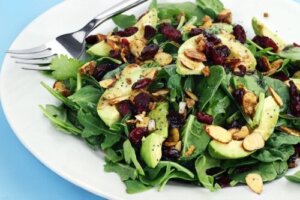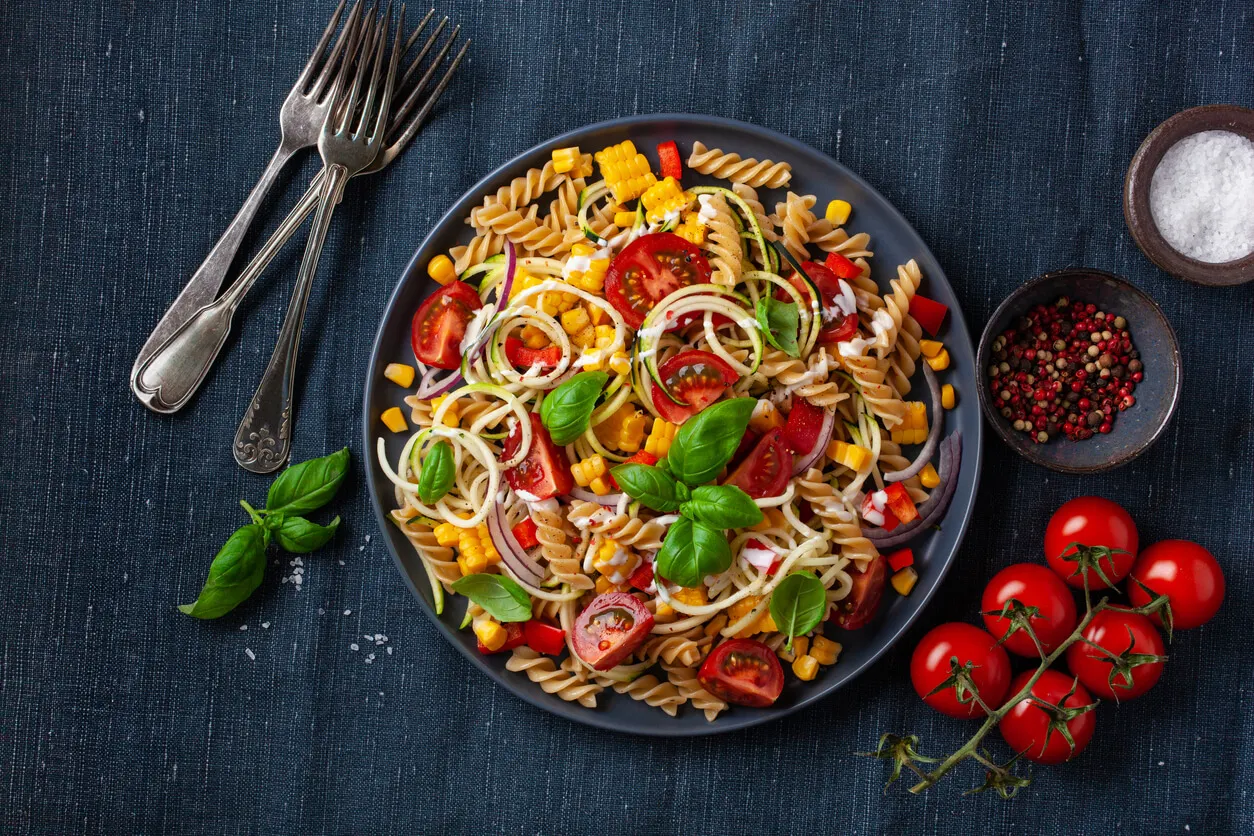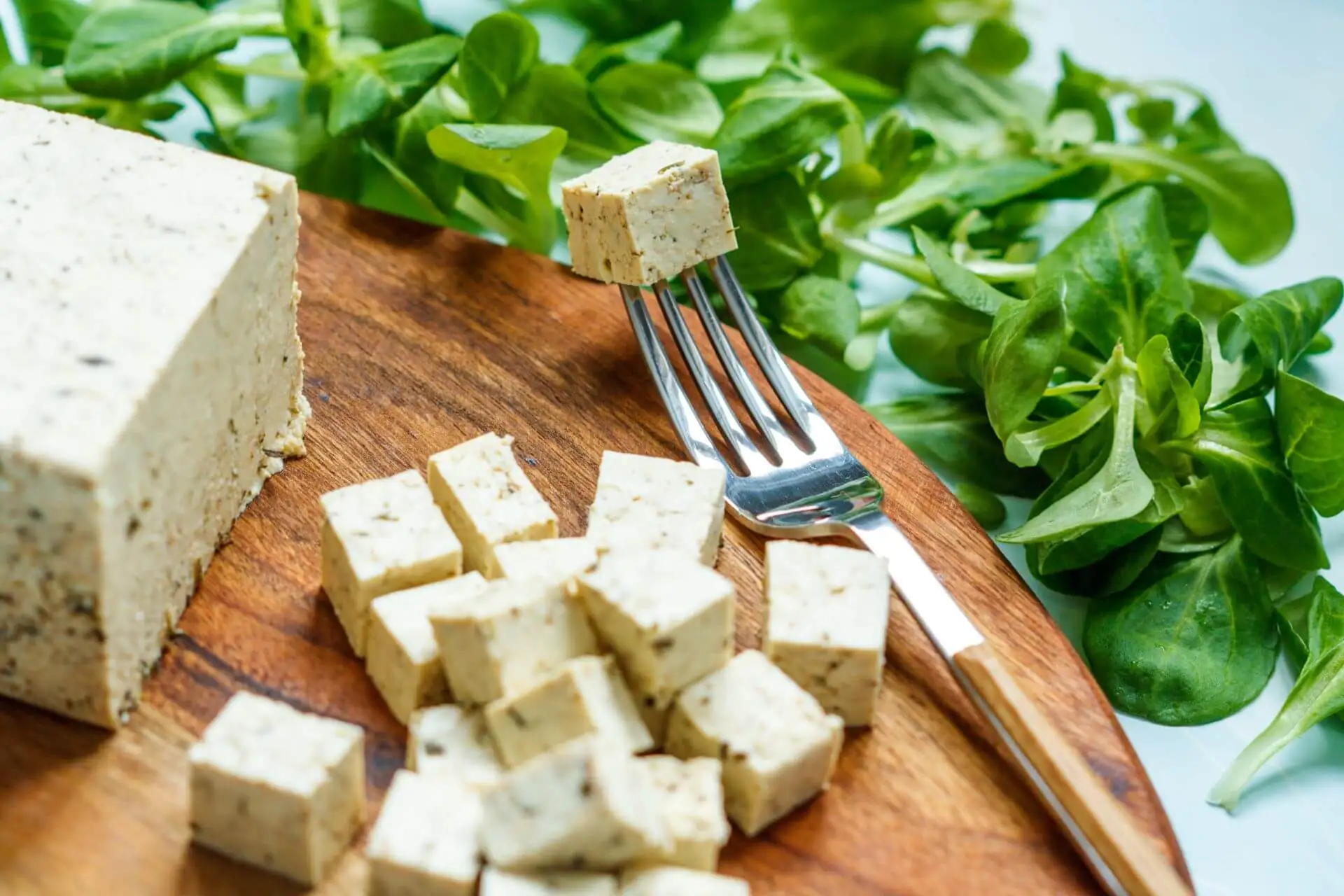Gluten in the Vegetarian Diet: What You Should Know


Written and verified by the nutritionist Saúl Sánchez Arias
The gluten-free vegetarian diet can be implemented in those people who have celiac disease or sensitivity to the nutrient and want to avoid the consumption of meat and fish. So what should you know about gluten in the vegetarian diet?
Gluten is a protein that’s present in many products of plant origin, especially in cereals such as wheat, barley, and rye. However, it’s possible to follow a gluten-free diet that satisfies the daily dietary requirements.
Before we begin, we must point out that vegetarian or vegan diets as such are not better for health than omnivorous diets. They shouldn’t be implemented for this reason. It’s a choice based on a deep moral burden related to the need to avoid animal suffering and mistreatment. It’s possible to optimize it to make it healthy, but it’ll be necessary to include supplements on a frequent basis.
Gluten in the vegetarian diet
Gluten in the vegetarian diet can be removed when there’s a confirmed diagnosis of celiac disease or simply when you experience intestinal problems after consuming this protein.
According to a study published in the journal Medicina, and regarding the latter, it’s possible to suffer digestive problems such as bloating, pain, gas, or diarrhea after the ingestion of gluten without actually being celiac. The exact physiology of the problem is unknown, but it’s called non-celiac gluten sensitivity.

Not all people who have developed this pathology have symptoms with the same intensity. Therefore, some are able to tolerate a certain amount of gluten in the pattern. In this case, it’ll be best to check individual sensations to either completely remove or partially remove the nutrient from your diet.
In the case of celiac disease, it will be necessary to be much stricter. Not only should the substance be completely removed, but it’s also key to ensure that no traces of it are ingested.
However, there are some products, such as oats, which can be consumed by certain people with celiac disease. Oats contain a substance similar to gluten, avenin, but with a different structure. Individual tolerance should be tested before including the food in the diet on a regular basis for this type of person.
For more information: The Best Diet for People with Celiac Disease
Gluten-free vegetarian products
In the context of fresh foods regarding gluten in the vegetarian diet, it’s sufficient to avoid wheat, barley, and rye. However, certain processed foods, such as meat substitutes, are often included in the diet to improve protein intake.
At least 0.8 grams of protein per kilogram of body weight per day should be guaranteed for sedentary people in order for the physiology to function properly. Research published in the Annals of Nutrition & Metabolism confirms this .
You’ll need to look for the gluten-free product certification in the labeling, especially when we’re talking about people with celiac disease. If not, the structure of the digestive tract can be affected, increasing the risk of suffering complex and chronic pathologies that could become life-threatening.
However, the presence of meat substitutes must be moderated. It’s key to increase protein intake, but they aren’t always the best option. For this, the inclusion of vegetable protein shakes in the daily diet may be a better alternative.
Pea protein is a good option. In addition, these supplements correct deficiencies in digestibility and amino acid deficiencies by means of food engineering.

In this way, the introduction in the organism of elements that can be harmful in the medium term, such as trans fats and artificial additives, is also avoided. Among the latter, artificial sweeteners are particularly noteworthy. Their impact on the body is controversial and some evidence suggests that they may cause damage to the intestinal microbiota over time.
You may also be interested in: Does the Creatine in Protein Shakes Cause Kidney Damage?
It is possible to follow a gluten-free vegetarian or vegan diet
As you’ve seen, it’s relatively simple to follow a gluten-free vegetarian diet. You just need to be careful with how much processed food you eat, always watching the labeling.
On the other hand, the use of certain cereals as sources of carbohydrates should be avoided. Above all, tubers, legumes, and rice or pseudocereals should be used in order to meet daily sugar needs.
Finally, sometimes the problem of non-celiac gluten sensitivity could be in the microbiota. Implementing a protocol to improve the quality of the microbiota would cause good results in the medium term, increasing the tolerance of the organism to the protein. The same is not true in the case of celiac disease. Here, the problem is autoimmune and only improves with total gluten restriction.
All cited sources were thoroughly reviewed by our team to ensure their quality, reliability, currency, and validity. The bibliography of this article was considered reliable and of academic or scientific accuracy.
- Richter, M., Baerlocher, K., Bauer, J. M., Elmadfa, I., Heseker, H., Leschik-Bonnet, E., … & German Nutrition Society (DGE. (2019). Revised reference values for the intake of protein. Annals of Nutrition and Metabolism, 74(3), 242-250. https://www.karger.com/Article/Abstract/499374
- Roszkowska, A., Pawlicka, M., Mroczek, A., Bałabuszek, K., & Nieradko-Iwanicka, B. (2019). Non-celiac gluten sensitivity: a review. Medicina, 55(6), 222. https://www.mdpi.com/470220
- Suez, J., Korem, T., Zeevi, D., Zilberman-Schapira, G., Thaiss, C. A., Maza, O., … & Elinav, E. (2014). Artificial sweeteners induce glucose intolerance by altering the gut microbiota. Nature, 514(7521), 181-186. https://www.nature.com/articles/nature13793
This text is provided for informational purposes only and does not replace consultation with a professional. If in doubt, consult your specialist.








